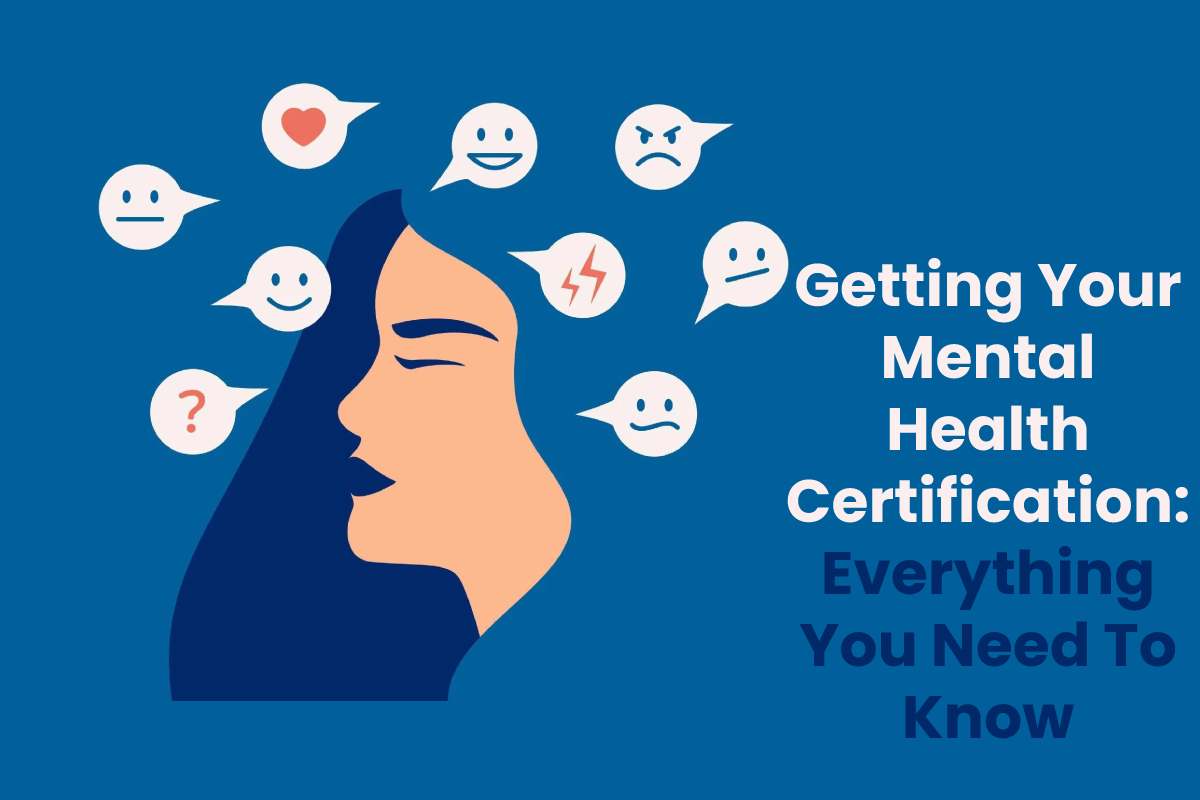
Mental Health Certification
The increased awareness of the importance of mental health throughout the communities has been rising. The certified mental health course’s introduction has allowed individuals to understand mental health issues and how best to manage severe conditions.
There are various benefits to taking a mental health course that will give you a certification. The technique allows the individual to overcome mental stresses and depression by providing multiple skills and knowledge that will help the individual to support his surrounding people better.
Table of Contents
Benefits of Obtaining a Certificate in Mental Health
Furthermore, it’s crucial to acquire a mental health certification because the mental health course will provide basic skills such as therapeutic communication, de-escalation techniques, and mandatory reporting, which are necessary for working in social service organizations.
In addition, through the course, an individual will receive a certificate in mental health first aid and a fundamental understanding of mental health, substance abuse, and developmental issues. However, the individual must know some things to receive the certification.
1. Determine your Mental Health Certification Specialty
The subject of mental health is broad and constitutes various categories within the field. Therefore the first step is for the individual to determine what type of mental health certification he wants. These certifications include organizational therapy, counseling, trauma and crisis, anxiety and depression, clinical addictions, etc.
2. Complete Supervised Clinical Work
To receive a mental health certification, an individual must undergo a supervised work course training that allows him to apply the theoretical knowledge into practice. Such works may include practical clinical hours with patients who have mental issues but are under a licensed mental health worker.
3. Develop and Improve Skills needed to work as a Mental Health Worker
Among the factors considered in providing mental health, certification is the developed skills required to handle a patient with mental issues are severe mental disorders. Among the skills is the ability to be empathetic with the patient to better understand what they are experiencing.
Also, active listening is essential in that the individual must learn to pay close attention to what the patient is saying to help them explore what they say, think and feel. In addition, the skill of communication is vital. One must be able to handle communications between the patients and provide explanations of complex concepts to promote comfortable sessions.
4. Qualify for Certification
This step allows the individual to sit for a state [mental health certification] exam. These exams cover mental health theories and state law regarding mental health treatment. However, to remain certified, one must complete the required amount of continuing education after two years.
In addition, adding voluntary certifications will add up to receiving a mental health certification since they will make you an exceptional mental health worker with specialized expertise and practices in various disciplines.
Conclusion
Getting your [mental health certification] is necessary for anyone aspiring to work in the social service field or serve their community. However, choosing the specialty area and having the required skills and expertise is key to becoming certified.


